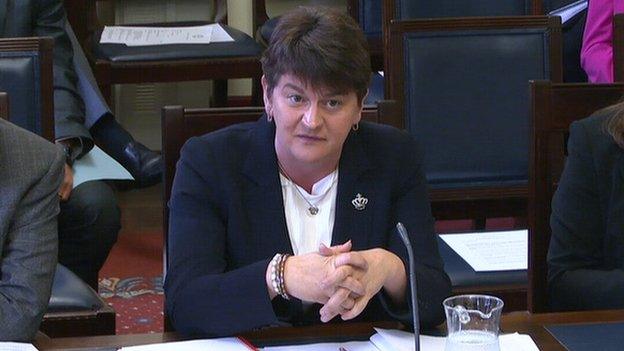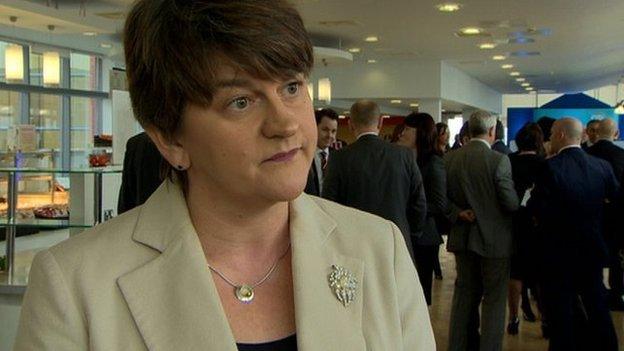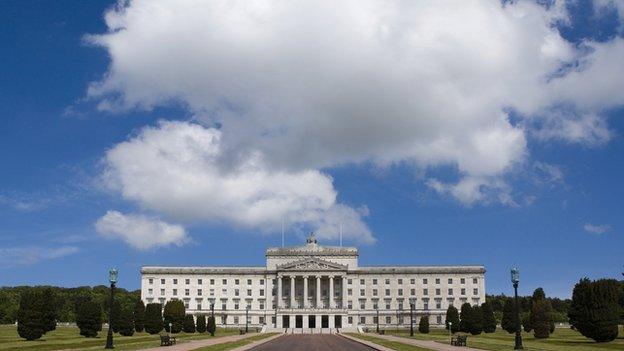Sinn Féin giving 'conditional support' to budget bill, McGuinness says
- Published
Martin McGuinness said Sinn Féin "will be giving conditional support" to the budget bill
Martin McGuinness has said Sinn Féin will conditionally back Finance Minister Arlene Foster's budget bill.
He said: "In the context of the present situation in relation to the budget, we will be giving conditional support to this budget bill."
The move would "create space which hopefully will see a resolution" of issues threatening the future of the assembly and the executive, he added.
The second stage of Mrs Foster's new bill was debated by MLAs on Monday.
A vote on it has been delayed until later in the week.
The DUP's Sammy Wilson described the deputy first minister's comments as illogical.
"We've got the deputy first minister talking about the need to have a sustainable budget and he doesn't even recognise the contradiction in his own objective," he said.
"On one hand, a sustainable budget while, on the other hand, doing everything he can to make sure the budget is not sustainable and indeed that we pay back money on a weekly basis to Westminster."
The Budget Number 2 Bill has been described as a fantasy budget as it was drawn up on the basis that welfare reform - which Sinn Féin and the SDLP have opposed - has already been agreed.
Crisis
Last week, the Stormont finance committee granted accelerated passage to the bill.
That would allow it to become law by the end of July.
The SDLP said they cannot support the budget bill "in its present form" but would not vote against it.
"The SDLP remains committed to negotiating on the issues within this budget and on welfare reform specifically, however we believe that this needs to be a mature negotiation which is not bound by side room deals or short term party political tactics," party leader Alasdair McDonnell said.
Judith Cochrane of Alliance said her party supported the budget "as the only option to give Northern Ireland a chance of pulling itself out of the deepening financial black hole".
The bill will pass with the backing of the DUP and Sinn Féin.
The passing of the budget will avert a short-term financial crisis and means a senior civil servant will not have to administer an emergency budget.
More discussions are expected on resolving the parties' outstanding differences over welfare reform and the Stormont House Agreement.
- Published17 June 2015

- Published16 June 2015

- Published8 June 2015

- Published9 June 2015
